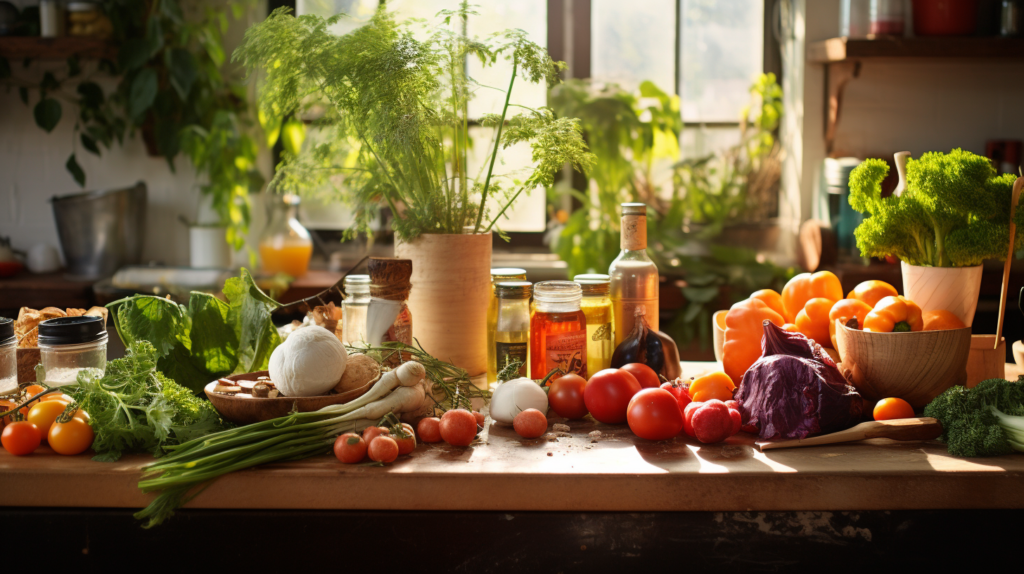
Making decisions that benefit our health and the environment is becoming increasingly crucial in today’s world of options. Choosing organic products is one decision that is becoming more and more popular. So why go for organic? Let’s examine the advantages of becoming green and the reasons why you might want to consider making this decision.
Good for You, Good for the Earth: Choosing organic means opting for products grown without synthetic pesticides, herbicides, and genetically modified organisms (GMOs). This not only reduces your exposure to harmful chemicals but also helps protect the soil, water, and air from contamination. It’s a win-win for your health and the health of our planet.
Nutrient-Rich Goodness: Organic foods often contain higher levels of essential nutrients. Since organic farmers focus on maintaining the health of the soil, their crops tend to be richer in vitamins, minerals, and antioxidants. When you choose organic, you’re not just eating, you’re nourishing your body with the goodness nature intended.
Say No to Harmful Chemicals: Conventional farming practices involve the use of synthetic pesticides and herbicides. By choosing organic, you’re saying no to these potentially harmful chemicals. This decision can have a positive impact on your long-term health by reducing your exposure to substances that have been linked to various health issues.
Tasty, Pure Flavor: Many people who choose organic foods rave about the taste. Without the artificial additives and preservatives commonly found in non-organic products, organic foods often have a purer, more authentic flavor. Whether it’s fruits, vegetables, or other organic goodies, you can savor the natural taste without the interference of synthetic enhancers.
Supporting Sustainable Practices: Organic farming methods prioritize sustainability. These practices aim to minimize environmental impact, conserve water, and promote biodiversity. By choosing organic, you’re supporting farmers who are committed to working in harmony with nature, fostering a more sustainable and resilient food system.
GMO-Free Zone: Genetically modified organisms (GMOs) have become a contentious issue in the world of food production. Organic products are inherently non-GMO, providing a clear choice for those looking to avoid genetically engineered ingredients. Going organic ensures you’re enjoying food as nature intended, without genetic modifications.
Animal Welfare Matters: Organic standards also extend to animal welfare. Organic farmers follow strict guidelines to ensure that animals are treated ethically, with access to the outdoors, natural diets, and living conditions that support their well-being. Choosing organic is not just about what you eat; it’s also about the humane treatment of animals in the farming process.
Reducing Environmental Impact: Conventional farming practices can contribute to soil erosion, water pollution, and depletion of natural resources. Organic farming, on the other hand, focuses on preserving the environment. By choosing organic, you’re contributing to a more sustainable and eco-friendly approach to agriculture.
Better for Future Generations: Opting for organic products is an investment in the future. By supporting organic farming practices, you’re helping to create a healthier environment for future generations. It’s a small but significant step towards leaving a positive legacy for those who will come after us.
A Personal Choice with Global Impact: Your choice to go organic might seem small, but collectively, these choices have a significant impact. By supporting the organic movement, you’re contributing to a larger shift in the food industry towards more sustainable, ethical, and environmentally friendly practices.
So, why choose organic? The choice to go organic goes beyond a mere preference; it’s a commitment to a healthier lifestyle for both you and the planet. By choosing organic, you become a part of a larger movement that values sustainability, environmental responsibility, and personal well-being. It’s not just about the food you eat; it’s about making choices that align with your values and contribute to a greener, more sustainable future.
